Advanced Search: Build a Custom Dashboard
In the fields below, search for indicators by location, topics, population, classification, subgroup, or comparison. No fields are required, but we suggest selecting a location or two to start. In the additional search options section, select options to group and order search results. To learn more about how to customize a dashboard, see our help center.
Visit the Indicator List Page to see the full list of indicators and locations available on the site.
Search Results:
Indicator Gauge Icon Legend
Legend Colors
Red is bad, green is good, blue is not statistically different/neutral.
Compared to Distribution
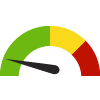 the value is in the best half of communities.
the value is in the best half of communities.
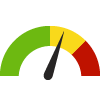 the value is in the 2nd worst quarter of communities.
the value is in the 2nd worst quarter of communities.
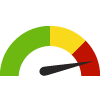 the value is in the worst quarter of communities.
the value is in the worst quarter of communities.
Compared to Target
 meets target;
meets target;  does not meet target.
does not meet target.
Compared to a Single Value
 lower than the comparison value;
lower than the comparison value;
 higher than the comparison value;
higher than the comparison value;
 not statistically different from comparison value.
not statistically different from comparison value.
Trend

 non-significant change over time;
non-significant change over time; 
 significant change over time;
significant change over time;  no change over time.
no change over time.
Compared to Prior Value
 higher than the previous measurement period;
higher than the previous measurement period;
 lower than the previous measurement period;
lower than the previous measurement period;
 no statistically different change from previous measurement period.
no statistically different change from previous measurement period.
Health / Wellness & Lifestyle
Health / Wellness & Lifestyle
County: Hawaii
County: Hawaii Adult Poor Physical Health: 14+ Days
County: Hawaii Adult Poor Physical Health: 14+ Days




County: Hawaii Adults Aware of the Hawaii Tobacco Quitline
County: Hawaii Adults Aware of the Hawaii Tobacco Quitline




County: Hawaii Adults Happy with Weight
County: Hawaii Adults Happy with Weight



County: Hawaii Adults who Agree Vaccine Benefits Outweigh Possible Risks
County: Hawaii Adults who Agree Vaccine Benefits Outweigh Possible Risks
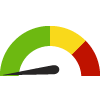



County: Hawaii Adults Who Belong to a Fitness Club or Gym
County: Hawaii Adults Who Belong to a Fitness Club or Gym



County: Hawaii Adults Who Binge Drink
County: Hawaii Adults Who Binge Drink





County: Hawaii Adults Who Drink Excessively
County: Hawaii Adults Who Drink Excessively



County: Hawaii Adults who Ever Used an Electronic Smoking Device
County: Hawaii Adults who Ever Used an Electronic Smoking Device




County: Hawaii Adults who Feel Life is Slipping Out of Control
County: Hawaii Adults who Feel Life is Slipping Out of Control



County: Hawaii Adults who Follow a Regular Exercise Routine
County: Hawaii Adults who Follow a Regular Exercise Routine



County: Hawaii Adults Who Formerly Smoked Cigarettes
County: Hawaii Adults Who Formerly Smoked Cigarettes





County: Hawaii Adults who Frequently Cook Meals at Home
County: Hawaii Adults who Frequently Cook Meals at Home



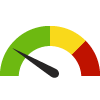




County: Hawaii Adults Who Get Insufficient Sleep
County: Hawaii Adults Who Get Insufficient Sleep










County: Hawaii Adults Who Meet Aerobic Physical Activity Guidelines
County: Hawaii Adults Who Meet Aerobic Physical Activity Guidelines






County: Hawaii Adults Who Meet High Aerobic Physical Activity Guidelines
County: Hawaii Adults Who Meet High Aerobic Physical Activity Guidelines






County: Hawaii Adults Who Meet Muscle Strengthening Guidelines
County: Hawaii Adults Who Meet Muscle Strengthening Guidelines






County: Hawaii Adults Who Smoke Cigarettes
County: Hawaii Adults Who Smoke Cigarettes






County: Hawaii Adults Who Use an Electronic Smoking Device
County: Hawaii Adults Who Use an Electronic Smoking Device





County: Hawaii Adults Who've Had Skin Cancer
County: Hawaii Adults Who've Had Skin Cancer





County: Hawaii Adults with Good Physical and Mental Health
County: Hawaii Adults with Good Physical and Mental Health




County: Hawaii Adults with Health Status of Good or Better
County: Hawaii Adults with Health Status of Good or Better





County: Hawaii Adults with High Blood Pressure
County: Hawaii Adults with High Blood Pressure





County: Hawaii Adults with Medical Conditions Limiting Lifestyle
County: Hawaii Adults with Medical Conditions Limiting Lifestyle



County: Hawaii Doctor Advised About Weight Among Obese/Overweight
County: Hawaii Doctor Advised About Weight Among Obese/Overweight



County: Hawaii Life Expectancy
County: Hawaii Life Expectancy



County: Hawaii Self-Reported General Health Assessment: Good or Better
County: Hawaii Self-Reported General Health Assessment: Good or Better






County: Hawaii Self-Reported General Health Assessment: Poor or Fair
County: Hawaii Self-Reported General Health Assessment: Poor or Fair
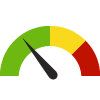

County: Hawaii Sexual Minority Adults
County: Hawaii Sexual Minority Adults



County: Hawaii Sexual or Gender Minority Adults
County: Hawaii Sexual or Gender Minority Adults



County: Hawaii Teens Who Get Sufficient Sleep
County: Hawaii Teens Who Get Sufficient Sleep





County: Hawaii Teens with 2 Hours or Less of Computer and Video Game Time
County: Hawaii Teens with 2 Hours or Less of Computer and Video Game Time





County: Hawaii Teens with 2 Hours or Less of TV Time
County: Hawaii Teens with 2 Hours or Less of TV Time





County: Hawaii Young Teens Who Get Sufficient Sleep
County: Hawaii Young Teens Who Get Sufficient Sleep








County: Hawaii Young Teens with 2 Hours or Less of TV Time
County: Hawaii Young Teens with 2 Hours or Less of TV Time





